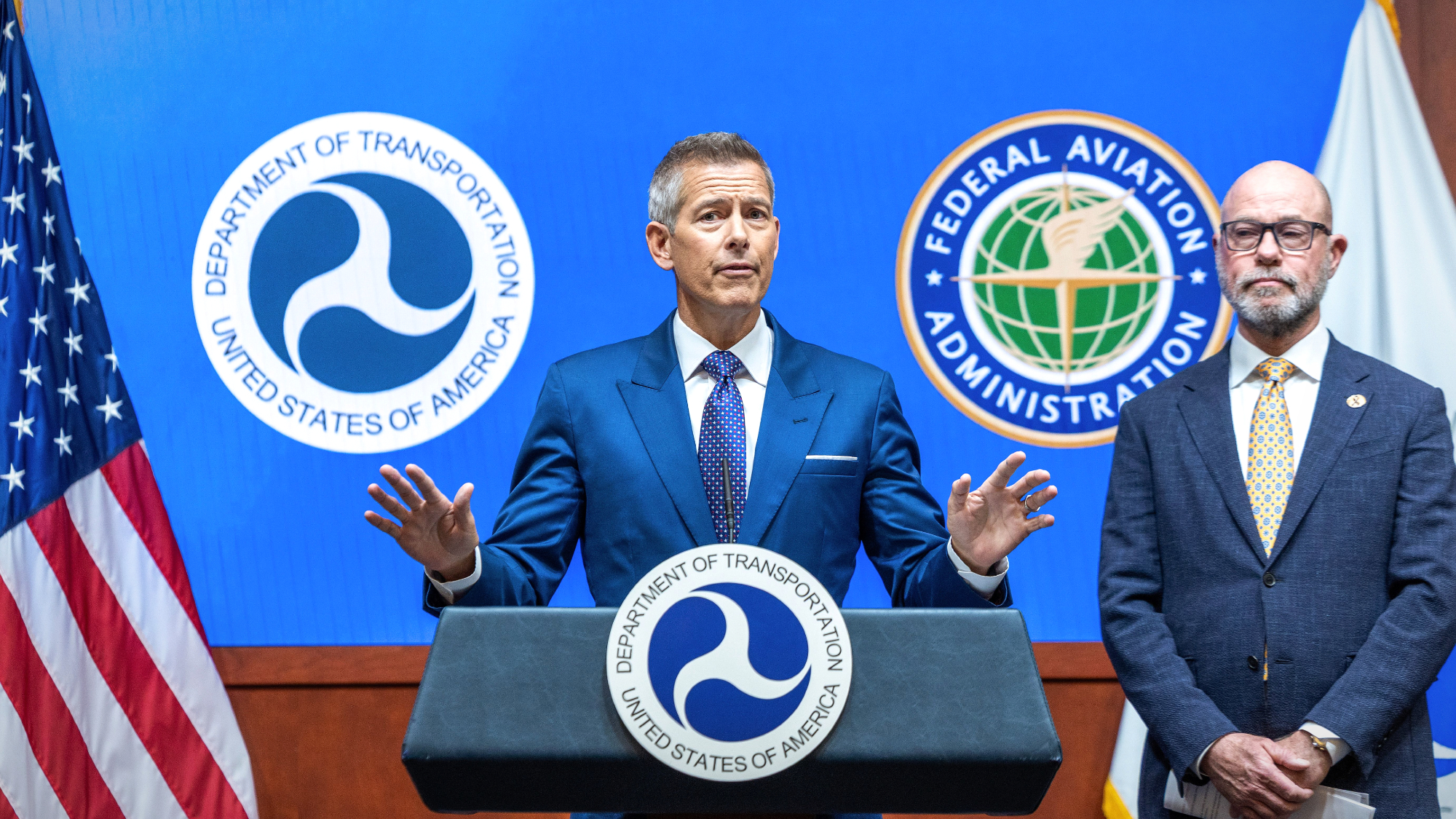The battle over post-Brexit flight rights
UK planes may be grounded unless a post-Brexit aviation deal is agreed

A free daily email with the biggest news stories of the day – and the best features from TheWeek.com
You are now subscribed
Your newsletter sign-up was successful
British planes could be grounded and holidaymakers stranded if Britain fails to agree new flying rights with the EU and other countries before it leaves the bloc next March.
At present, Britain is set to leave the EU’s Open Skies Agreement on 30 March 2019. If this happens without a replacement deal in place, British airlines will lose all the flying rights the EU has negotiated with third countries, as well as those negotiated by individual EU states.
“Both airlines and airports have been vocal about the risks posed by the no-deal scenario and have urged London and Brussels to quickly provide certainty for the industry,” says Reuters.
The Week
Escape your echo chamber. Get the facts behind the news, plus analysis from multiple perspectives.

Sign up for The Week's Free Newsletters
From our morning news briefing to a weekly Good News Newsletter, get the best of The Week delivered directly to your inbox.
From our morning news briefing to a weekly Good News Newsletter, get the best of The Week delivered directly to your inbox.
The problem is extremely time-sensitive, with most carriers set to announce their 2019 flight schedule this summer, and some claiming they cannot guarantee flights will be running or routes available without some idea if there will be a deal in place by April next year.
Ryanair boss Michael O'Leary “has repeatedly warned that flights could be grounded if an aviation deal is not reached as part of the Brexit negotiations”, reports The Sun.
In just one example of the problems posed by negotiating a bespoke aviation deal, The Financial Times reported that the US is preparing to offer the UK a worse “open skies” deal after Brexit than it had as an EU member, “in a negotiating stance that would badly hit the transatlantic operating rights of British Airways and Virgin Atlantic”.
The FT claims that American negotiators have offered only a standard bilateral agreement, which “typically require airlines to be majority owned and controlled by parties from their country of origin” and which would be “problematic” for British carriers as they have large foreign shareholdings.
A free daily email with the biggest news stories of the day – and the best features from TheWeek.com
All this may seem technical but it could have serious consequences for consumers.
The consumer group Which? has called on travel firms to do more to highlight the possible financial implications for customers if no agreement to continue flights is reached.
-
 The ‘ravenous’ demand for Cornish minerals
The ‘ravenous’ demand for Cornish mineralsUnder the Radar Growing need for critical minerals to power tech has intensified ‘appetite’ for lithium, which could be a ‘huge boon’ for local economy
-
 Why are election experts taking Trump’s midterm threats seriously?
Why are election experts taking Trump’s midterm threats seriously?IN THE SPOTLIGHT As the president muses about polling place deployments and a centralized electoral system aimed at one-party control, lawmakers are taking this administration at its word
-
 ‘Restaurateurs have become millionaires’
‘Restaurateurs have become millionaires’Instant Opinion Opinion, comment and editorials of the day
-
 El Paso airspace closure tied to FAA-Pentagon standoff
El Paso airspace closure tied to FAA-Pentagon standoffSpeed Read The closure in the Texas border city stemmed from disagreements between the Federal Aviation Administration and Pentagon officials over drone-related tests
-
 How corrupt is the UK?
How corrupt is the UK?The Explainer Decline in standards ‘risks becoming a defining feature of our political culture’ as Britain falls to lowest ever score on global index
-
 ‘Implementing strengthened provisions help advance aviation safety’
‘Implementing strengthened provisions help advance aviation safety’Instant Opinion Opinion, comment and editorials of the day
-
 The high street: Britain’s next political battleground?
The high street: Britain’s next political battleground?In the Spotlight Mass closure of shops and influx of organised crime are fuelling voter anger, and offer an opening for Reform UK
-
 Biggest political break-ups and make-ups of 2025
Biggest political break-ups and make-ups of 2025The Explainer From Trump and Musk to the UK and the EU, Christmas wouldn’t be Christmas without a round-up of the year’s relationship drama
-
 ‘The menu’s other highlights smack of the surreal’
‘The menu’s other highlights smack of the surreal’Instant Opinion Opinion, comment and editorials of the day
-
 Is a Reform-Tory pact becoming more likely?
Is a Reform-Tory pact becoming more likely?Today’s Big Question Nigel Farage’s party is ahead in the polls but still falls well short of a Commons majority, while Conservatives are still losing MPs to Reform
-
 FAA to cut air travel as record shutdown rolls on
FAA to cut air travel as record shutdown rolls onSpeed Read Up to 40 airports will be affected